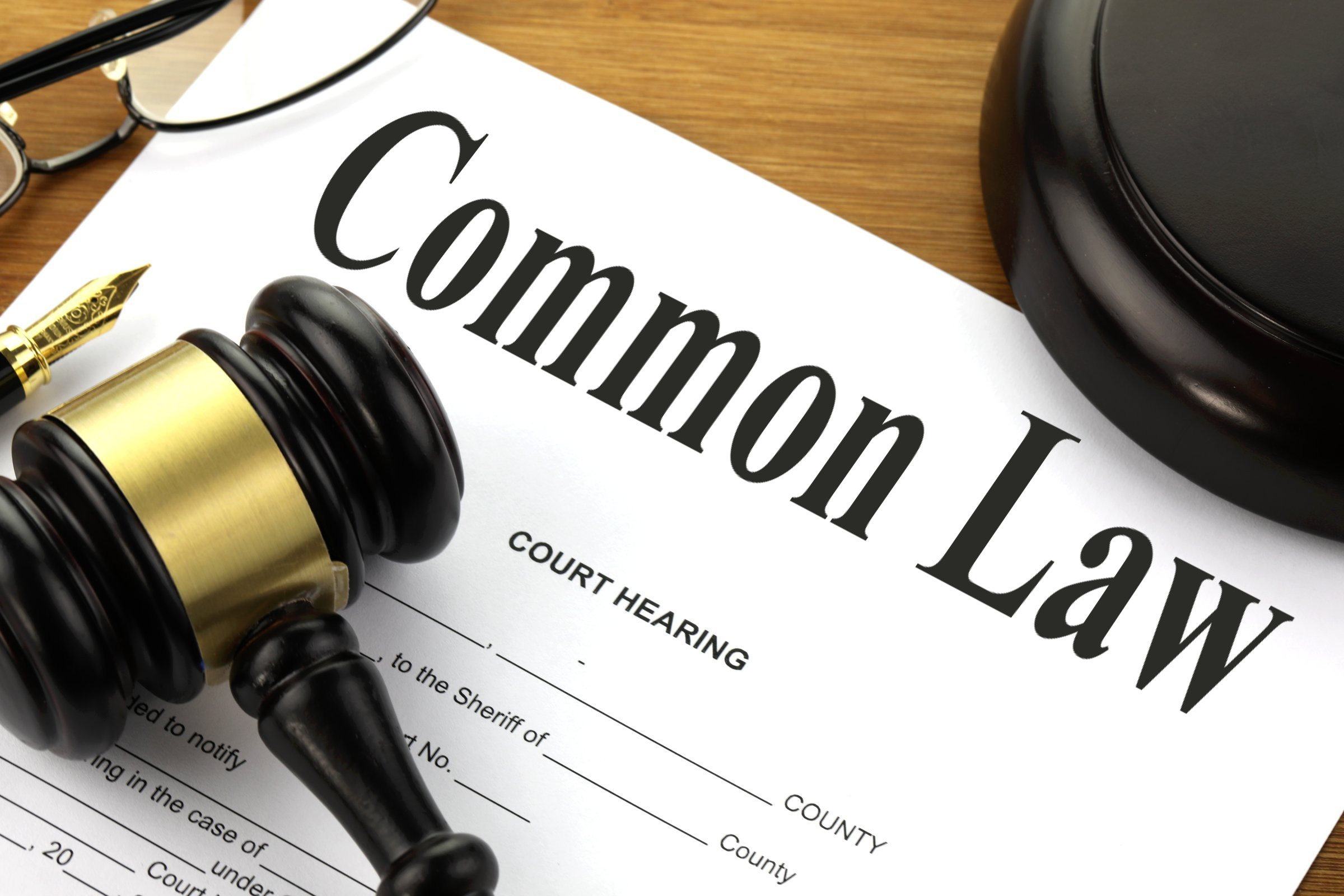In Kansas, there is a common law marriage doctrine that allows couples to be considered married without having a formal ceremony or signing any documents. This can be a great option for couples who don’t want to go through the hassle of getting married, but it’s important to understand the implications of being in a common law marriage. Here are some things you need to know about common law marriage in Kansas.
Contents
- 1 What Is A Common-Law Marriage?
- 2 What States Currently Allow Common-Law Marriages?
- 3 Does Kansas Recognize Common Law Marriage?
- 4 Does Kansas Recognize Common Law Marriages That Were Established In Other States?
- 5 What Are The Requirements For Common Law Marriage In Kansas?
- 6 What Is The Legal Effect Of Common Law Marriage In Kansas?
- 7 A Few Pros And Cons Of Common Law Marriage In Kansas?
- 8 FAQ: Common Law Marriage
- 8.1 Does kansas recognize domestic partnership?
- 8.2 How many years do you have to live together for common law marriage in kansas?
- 8.3 How do you prove common law marriage in kansas?
- 8.4 Does a common law marriage require certificate?
- 8.5 What are the benefits of a common law marriage?
- 8.6 Is it better to claim common law or single?
- 8.7 Are common-law partners entitled to anything?
- 8.8 How do you protect yourself from common law marriage?
- 8.9 Is cohabitation legal in kansas?
- 8.10 How do you prove common-law marriage in new jersey after death?
- 9 Conclusion: Common Law Marriage In Kansas
What Is A Common-Law Marriage?
A common law marriage is a type of marriage that is recognized in Kansas. Unlike a traditional marriage, it doesn’t require any kind of ceremony or official documents to be valid. Instead, you are considered married as long as you meet the legal requirements for being in a common law marriage and live together as husband and wife.
What States Currently Allow Common-Law Marriages?
Currently, Kansas is one of only a few states that still recognize common law marriages. In addition to Kansas, other states where you can be in a common law marriage include Alabama, Iowa, Colorado, Montana, and South Carolina.
Does Kansas Recognize Common Law Marriage?
Yes, Kansas recognizes common law marriages. To be considered legally married in Kansas through a common law marriage, you must satisfy several requirements. These include meeting the legal definition of a spouse, having the intention to enter into a marital relationship, and living together as husband and wife.

Does Kansas Recognize Common Law Marriages That Were Established In Other States?
In general, Kansas will recognize common law marriages established in other states, as long as they meet the legal requirements for a common law marriage under Kansas law. However, it’s important to understand that there may be certain circumstances where this recognition doesn’t apply. For example, if you entered into a common law marriage in another state but then moved to Kansas, Kansas may not recognize your common law marriage if you never lived together as husband and wife in the state.
If you are in a common law marriage in Kansas and want to know more about your rights and obligations, it’s important to consult with an experienced family law attorney. They can help you understand your legal rights and obligations under Kansas law, as well as any potential legal issues that may arise.
Regardless of whether you are in a common law marriage or a traditional marriage, it’s important to understand your rights and obligations under the law. With the help of an experienced family law attorney, you can ensure that your interests are protected at all times.
What Are The Requirements For Common Law Marriage In Kansas?
To be considered legally married in Kansas through a common law marriage, you must meet certain requirements. These include meeting the legal definition of a spouse, having the intention to enter into a marital relationship, and living together as husband and wife. If you are unsure whether you qualify for common law marriage in Kansas, it’s important to speak with an experienced family law attorney. They can help you understand the requirements and determine whether you are eligible to be in a common law marriage. Additionally, they can provide guidance on any legal issues that may arise as a result of your marital status.
Given the complex nature of family law issues, it’s critical to work with an experienced attorney who can help protect your interests. Whether you are in a common law marriage or a traditional marriage, it’s important to have legal representation on your side to ensure that you are treated fairly and equitably under the law. With the right family law attorney by your side, you can feel confident knowing that your rights and interests will be protected throughout the legal process.

What Is The Legal Effect Of Common Law Marriage In Kansas?
Under Kansas law, common law marriages are considered valid and have the same legal effect as a traditional marriage. This means that you will be entitled to all of the same rights and obligations granted to married couples under state law, including property and spousal support rights if you decide to divorce or separate. Additionally, your relationship status may impact certain financial and legal obligations, so it’s important to understand how your marital status may affect these issues.
If you are in a common law marriage in Kansas and need help with any family law issue, contact an experienced family law attorney today. They can help protect your rights and interests under the law, as well as provide guidance for any legal issues that may arise as a result of your marital status.
For more information about common law marriage, contact an experienced family law attorney today. They can help you understand the legal requirements for common law marriage in Kansas and work closely with you to protect your rights and interests under the law at all times. Additionally, they can provide guidance on any other family law issues that may arise, such as property division or spousal support. With the right legal representation on your side, you can feel confident knowing that you are in good hands throughout the legal process.
A Few Pros And Cons Of Common Law Marriage In Kansas?
There are a number of pros and cons associated with common law marriage in Kansas. Some of the most notable include the following:
PROS:
– In many cases, common law marriage is more flexible than traditional marriage. For example, you may be able to dissolve your relationship without going through a costly legal process like divorce.
– Since common law marriage is legally recognized in most states, it can help provide you with the same legal protections and obligations as a married couple. This may include various financial and property rights.
CONS:
– There may be complex legal issues that arise as a result of common law marriage in Kansas. This can make it difficult to determine your rights and obligations, especially if you decide to separate or divorce.
– If you are not eligible for a common law marriage in Kansas, you may have limited options for protecting your relationship status. For example, if you are in a same-sex relationship, your only option may be to legally marry.
Overall, the pros and cons of common law marriage in Kansas will depend on your individual needs and circumstances. If you have questions about whether this type of relationship is right for you, it’s important to consult with an experienced family law attorney. They can help guide you through the legal process and provide support at every step along the way. With their help, you can feel confident knowing that your rights and interests are being protected under the law.

FAQ: Common Law Marriage
Does kansas recognize domestic partnership?
In Kansas, domestic partnerships are not recognized under state law. However, same-sex couples in the state may be able to enter into a common law marriage if they meet certain legal requirements. To learn more about this process and whether it is right for your situation, consult with an experienced family law attorney in your area today.
How many years do you have to live together for common law marriage in kansas?
The length of time that you must live together to be eligible for common law marriage in Kansas depends on the specific laws of your state. Generally, however, couples must live together for a certain period of time before they are considered married under the law. In general, this ranges anywhere from one year to several years depending on the specific requirements in your state. To learn more about these requirements and how they may impact your relationship, consult with an experienced family law attorney in your area. They can help guide you through the legal process and provide support at every step along the way.
How do you prove common law marriage in kansas?
The process for proving common law marriage in Kansas can vary depending on the specific circumstances of your case. Typically, you will need to provide evidence that you and your partner have met certain legal requirements, such as living together for a certain period of time or sharing financial responsibilities.
Does a common law marriage require certificate?
In most cases, a common law marriage does not require a certificate in order to be legally recognized. However, you may still need to provide additional documentation or evidence that your relationship meets the requirements for common law marriage in your state. To learn more about these requirements and how they may impact your specific situation, consult with an experienced family law attorney in your area.
What are the benefits of a common law marriage?
There are a number of legal benefits that can come with a common law marriage, including the same financial and property rights as married couples. Additionally, you may be able to access certain government benefits and protections that are not typically available to unmarried couples.
Is it better to claim common law or single?
The decision of whether to claim common law or single status will depend on your individual needs and circumstances. If you are in a same-sex relationship, for example, you may prefer to be considered legally married under the law. On the other hand, if you have children from another relationship and do not wish to have your parenting status impacted by your current relationship, you may prefer to claim single status.
Are common-law partners entitled to anything?
There are a number of legal benefits that may be available to common law partners, including the same financial and property rights as married couples. Additionally, you may be able to access certain government benefits and protections that are not typically available to unmarried couples.
How do you protect yourself from common law marriage?
To protect yourself from common law marriage, it is important to carefully document your relationship and ensure that you meet all of the legal requirements. This may include creating a cohabitation agreement with your partner or speaking with an experienced family law attorney who can provide guidance and support throughout the process.
Is cohabitation legal in kansas?
Yes, cohabitation is legal in Kansas. However, it is important to understand the specific requirements for common law marriage in your state and ensure that you meet these requirements in order to be eligible for legal recognition of your relationship.
How do you prove common-law marriage in new jersey after death?
In order to prove common-law marriage in New Jersey after death, you will typically need to provide evidence that you and your partner met certain legal requirements, such as living together for a certain period of time or holding yourself out as married.
Conclusion: Common Law Marriage In Kansas
If you are considering entering into a common law marriage, it is important to understand the legal requirements and how they may impact your relationship. To learn more about these issues and how they may affect your specific situation, consult with an experienced family law attorney in your area. They can help guide you through the process and provide support at every step along the way.
Scott A. Bentley Attorney at Law in McHenry, IL is a debt relief and personal injury attorney dedicated to helping people in their time of need. He can assist in filing bankruptcy under the bankruptcy code or work with you through a personal injury case. His more than 25 years of experience provide him with the insight and knowledge you need when contending with difficult legal issues. Scott Bentley bankruptcy services stop: Creditor harassment, Lawsuits, Garnishments, Foreclosures, Repossessions, By filing for chapter 7 or 13 bankruptcy with Scott Bentley, you’ll also be able to create personal reorganization plans that serve to resolve individual bankruptcy issues. He and his staff are committed to providing you with dignified service and the respect you deserve. Just because you owe someone or some company money doesn’t mean you forfeit your rights. With Mr. Bentley you can be sure you will receive personalized attention and aggressive legal representation. The firm is proud to
